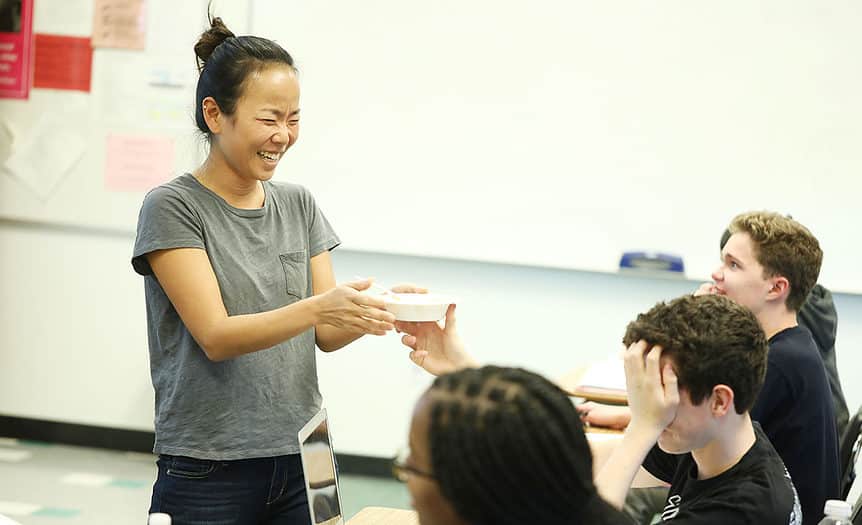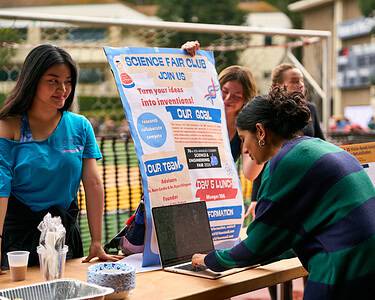By Mia ’21
I promise that I am only slightly biased when I tell you about this amazing, super fun, fantastic club. Picture this: you’re in a room with super smart, super funny, super engaging people talking about ethical dilemmas that occur in everyday life. Okay, I hope I didn’t lose you with that last part (Those that are more excited by that last part, you have come to the right place). Bear with me a bit longer. You walk into your favorite English classroom to see me. That’s enough for you to join, right? Just kidding. Let me explain further.
I co-lead a club called Ethics Bowl. ‘Mia,’ you might be responding, ‘I only watch the Super Bowl.’ And to that blasphemous statement, I gasp and demand you keep reading. According to the National High School Ethics Bowl’s official site, Ethics Bowl is a club that ‘supports competitive yet collaborative events in which students discuss real-life ethical issues.’ Bleh. It’s so much more!!!!! But how good does that sound to tell your parents? Mine were definitely enthusiastic about my participation. But I digress.
Truth be told, I don’t know how to fully encapsulate everything that I love about Ethics Bowl in a short blog post. My idol–sorry, previous leader of the club–describes it as a ‘passive-aggressive debate.’ How fun does that sound? You have to join to see us in action. Here’s what I can tell you, though. Your perspective matters. This is true everywhere at Harvard-Westlake, but here you can feel the power of what that implies. It doesn’t matter your prior experience with ethical issues or your comfort with your own voice; this is your place to think, to grow, and to learn deeply about modern issues that require solutions as we grow older. Through discussing the moral permissibility of seemingly random concepts–from the distribution of livers to gerrymandering to reading your sister’s diary–we engage in conversations that challenge our own solutions and assumptions. As the weeks go by, you’ll pick up some cool ethics jargon (normative ethics, anybody? ethical pluralism?) and further develop your critical thinking skills. I’m just showing off now, but let me tell you from first-hand experience: 99% of your friends will not be able to refute your argument if you use one of these new concepts (virtue ethics! moral nihilism!) in said argument. I, personally, have used this power more times than I care to admit (i.e. trying to explain why a friend should NOT go back to her ex).
Through our discussions, we gradually prepare for the competition in February. Using the given set of cases that guide us, we prepare to use our voices and think critically about our own beliefs. When we dress up for the competition on that super early February morning, we prepare to use our voices and seek to understand our competitors, but more importantly, all of us are preparing for the world outside of high school, one where ethics discussions are imperative for the well-being of our futures and for change that is necessary in our lives.






